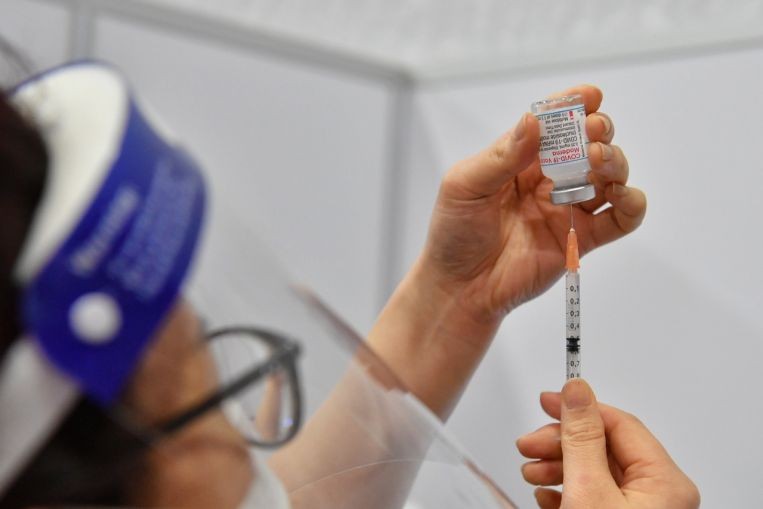Covid-19 vaccines are 40% effective against infection, 'very effective' against severe illness: Ong Ye Kung


SINGAPORE - The ability of Covid-19 vaccines to prevent any infection is about 40 per cent, but vaccines continue to be very effective in protecting against severe illnesses and deaths, Health Minister Ong Ye Kung said.
Speaking during a virtual press conference on Friday (Sept 3), Mr Ong said the Delta variant is a lot more infectious and has resulted in more vaccinated people being infected.
"Vaccines still protect a person against infection, but the strength of the protection will come down as antibodies wane several months after the vaccination," said Mr Ong, who co-chairs the multi-ministry task force on Covid-19.
Associate Professor Kenneth Mak, who is director of medical services at the Ministry of Health (MOH), said although being fully vaccinated does not mean a person will never get Covid-19, it still greatly reduces the chances of needing intensive care or dying.
"Over the last 28 days, the percentage of those who were unvaccinated and who became severely ill or died was 9.2 per cent, while the percentage of those who are fully vaccinated but then became ill was 1.3 per cent," he said.
"This is a seven-fold reduction in the rate of severe infections or death, a stark difference which actually demonstrates the protective benefits that vaccination provides."
[[nid:542575]]
Responding to a question on the degree of protection offered by the Sinovac vaccine, Prof Mak said the number of individuals who took the Sinovac vaccine in Singapore is relatively small and there is not enough data to make a conclusion.
Sinovac is currently available in Singapore under the Special Access Route but is not part of the national vaccination programme.
Prof Mak added that it is too early to say whether or not "breakthrough" infections in Singapore - which refers to infections among fully vaccinated people - occur as a result of those who previously received the Sinovac vaccine.
Additionally, the MOH will soon change how it reports the Covid-19 situation in its daily update in order to reflect the salient issues the country is facing in the next stage of its fight against the virus.
While vaccination remains key, the minister noted that Singapore already has a high vaccination rate of over 80 per cent, and that figure is plateauing. Given this, there is no longer a need for the MOH to go into so much detail in its daily reports, he added.
The number of unlinked cases is also less relevant now that Singapore is no longer trying to "chase down every single case", Mr Ong said.
"On the other hand, our public wants to know more information about emerging clusters, so that they avoid certain places, so that they can regulate their own activities, and this is good. We should make that information available in a timely way and in a relevant way so that the public can act upon it."
This article was first published in The Straits Times. Permission required for reproduction.